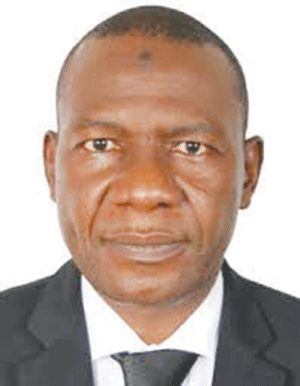The measure introduced by the Central Bank of Nigeria (CBN) to tighten access to foreign exchange (forex) market to conserve external reserves has more or less crashed the naira two weeks after.
Investigation by TheNiche showed that importers, including high net worth companies, that can no longer source dollars from the official window besiege the black market in Lagos offering to buy dollars and other hard currencies at higher rates.
This is in addition to over $5.5 billion quarterly demand, much of which is unmet, which moved from the interbank market to the parallel market and exerted more pressure on dollar demand. Underground dealers now hoard the dollar.
The naira has slipped from N220 to N230 to the dollar at the parallel market, driven by pressure from importers excluded from the interbank market.
The CBN penultimate week directed that proceeds from exports and bureaux de change (BDCs) cannot fund about 41 import items classified as “not valid for forex”.
A new circular dated July 1 further warned banks not to sell forex to the importers of the 41 items banned from the forex market.
The CBN reminded dealers and banks that their dollar cash sale for six items, including school fees, insurance premium, basic travel allowance, and monthly mortgage, should not exceed $5,000.
About two weeks after the ban, the naira has crashed to N230 against the dollar at the parallel market, down from N218 on June 23 when the new forex rule was introduced.
However, trading in the interbank market, pegged around the CBN’s rate of N196.90, was at N198.95.
Operators cash in
The spread between interbank and parallel market rates has created a profitable business for dealers who may not resist the allure to divert forex sourced from the official window to the street market for quick gain.
Investigation showed that the policy has pushed huge forex demand from the official market to the parallel market and BDC, resulting in artificial scarcity of dollar and other major foreign currencies which operators hoard in anticipation of further devaluation.
The Association of Bureau De Change Operators (ABDCO) has written to the CBN to intervene in the dollar scarcity in the parallel market and BDC to save the naira from crashing further.
ABDCO appealed to the CBN to increase weekly forex sale to BDCs from $30,000 to $50,000. And it urged the CBN to reintroduce the autonomous market where it could sell about $100,000 to dealers.
ABDCO President, Aminu Gwadabe, said it is expedient for the CBN to increase forex sale to BDCs to stabilise the naira.
Matthew Eze, a forex dealer at the International Trade Fair Complex, Lagos, confirmed that some are hoping that the naira will be devalued again, and therefore may be holding on to their dollars.
Bismarck Rewane, Financial Derivatives Company Managing Director and Chief Executive Officer, argued that there is need for the CBN to further adjust the naira to reflect the reality of the economy.
To him, by sending a signal that there is not enough dollar in CBN kitty and excluding some importers from accessing forex, the CBN is trying to use monetary policy to correct a fiscal policy problem, which has contributed to weaken the naira further.
CBN message increases speculative demand
Said Rewane: “This signal the CBN has sent out gives the message that there is some shortage. This increases speculative demand for the dollar.
“Investors are also taking away their money elsewhere despite attractive high percentage interest rate because of fear the naira, being a weaker currency, may depreciate in value at any time.
“That fear is what is partly driving the demand for dollar. The CBN signal has heightened that fear.”
In his view, the signal impact is more serious than the direct impact of expected inflationary pressure, the major problem the country is facing is the bloated import bill for petrol and kerosene, and the government must deal with fuel subsidy problem before the currency problem.
Fuel subsidy removal
Rewane, an economist, urged Abuja to remove fuel subsidy before further adjustment in the naira, if necessary, insisting that subsidy removal will help strengthen forex reserves and improve naira to dollar exchange rate.
He stressed that if subsidy is removed import bills will drop by a minimum 20 per cent, and if the 20 per cent drop in import bill is added to 26 per cent devaluation in the naira, it will be in equilibrium; and with about 46 per cent drop in crude oil earnings, there will be no need to further adjust the naira.
“Even if you are going to carry out more adjustments, it will be minimal. But if you try to put administrative controls or try to adjust the currency ahead of the subsidy issue, then you will have distortions.
“Those distortions are what we’re facing right now.”
Impact on investment
Rewane said international investors expected in Nigeria are on the sidelines because they anticipate further devaluation of the naira.
“Inflows are being delayed; outflows are being accelerated. So, the pressure on the naira continues to increase.
“For me, what the CBN has done is to send a signal that truly we are having cash flow problems. Once there is such a signal, people continue to buy more.”
Some believe the naira may shrink to N250 against the dollar in the coming days.















